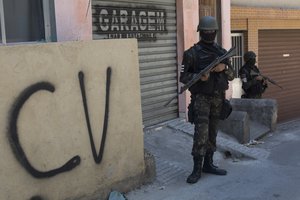Please tell us which country and city you'd like to see the weather in.

Belfast
Coordinates: 54°35′49″N 5°55′48″W / 54.597°N 5.930°W / 54.597; -5.930
Belfast (/ˈbɛl.fɑːst/ or /ˈbɛl.fæst/; from Irish: Béal Feirste, meaning "mouth of the sandbanks") is the capital and largest city of Northern Ireland. Most of Belfast, including the city centre, is in County Antrim, but parts of East and South Belfast are in County Down. It is on the flood plain of the River Lagan. The city's motto is Pro Tanto Quid Retribuamus (roughly Latin for "what shall we give in return for so much").
By population before the 2015 council reform, Belfast was the 17th largest city in the United Kingdom and the second largest on the island of Ireland. It is the seat of the devolved government and legislative Northern Ireland Assembly. At the time of the 2011 census, the city of Belfast had a population of 286,000. With the 2015 council reform it is 333,871 and lies at the heart of the Belfast Urban area, which has a population of 483,418 and the Belfast Metropolitan Area, which had a population of 579,276 at the 2001 census. The larger urban zone, as defined by the European Union, had an estimated total population of 673,000 on 1 January 2012. Belfast was granted city status in 1888.

Belfast (album)
Belfast is an album by folk metal artists Mägo de Oz, which was released in 2004.
Track listing
DVD
Members
Belfast (Northern Ireland Parliament constituencies)
Belfast is the largest city and capital of Northern Ireland. It is partly located in County Antrim and partly in County Down.
Belfast was represented in the Northern Ireland House of Commons 1921-1973. This article deals with the Belfast borough constituencies. For the County Antrim and County Down county constituencies, see Antrim (Northern Ireland Parliament constituencies) and Down (Northern Ireland Parliament constituencies). See also the List of Northern Ireland Parliament constituencies 1921-1973.
Boundaries
1921-1929: The City of Belfast was divided into four constituencies, each returning four MPs, using the single transferable vote method of proportional representation. There were four single member UK Parliament constituencies with the same names, which existed from 1885-1918 and since 1922. See Belfast East, Belfast North, Belfast South and Belfast West.
The Northern Ireland Parliament seats comprised the following wards of the then County Borough of Belfast (as they existed in 1921).
Radio Stations - Belfast
SEARCH FOR RADIOS
BELFAST
ALBUMS
- HEAVY METAL FORCE Ⅳ released: 1987
Белфаст
ALBUMS
- Пиво на асфальте released: 2006
- Парад св. Патрика released: 2003


Belfast
Coordinates: 54°35′49″N 5°55′48″W / 54.597°N 5.930°W / 54.597; -5.930
Belfast (/ˈbɛl.fɑːst/ or /ˈbɛl.fæst/; from Irish: Béal Feirste, meaning "mouth of the sandbanks") is the capital and largest city of Northern Ireland. Most of Belfast, including the city centre, is in County Antrim, but parts of East and South Belfast are in County Down. It is on the flood plain of the River Lagan. The city's motto is Pro Tanto Quid Retribuamus (roughly Latin for "what shall we give in return for so much").
By population before the 2015 council reform, Belfast was the 17th largest city in the United Kingdom and the second largest on the island of Ireland. It is the seat of the devolved government and legislative Northern Ireland Assembly. At the time of the 2011 census, the city of Belfast had a population of 286,000. With the 2015 council reform it is 333,871 and lies at the heart of the Belfast Urban area, which has a population of 483,418 and the Belfast Metropolitan Area, which had a population of 579,276 at the 2001 census. The larger urban zone, as defined by the European Union, had an estimated total population of 673,000 on 1 January 2012. Belfast was granted city status in 1888.
Latest News for: bump belfast
AVA 2018 review
On its 20th anniversary, the Good Friday Agreement teaches us important lessons – even for those with blood on their hands
Meghan and Harry visit Northern Ireland: Playful hint at possible royal baby generates huge excitement
Baby products? We’ll need the whole lot, jokes Meghan Markle
Baby products? We´ll need the whole lot, jokes Meghan Markle
Leo Varadkar discusses gay rights issue with Mike Pence
Young girl rushed to hospital after being hit by car in Larne
Alan Snoddy: 'Valderrama went down, but I knew he was time-wasting. I gave him a look that said don't try that again and I'd no more issues with him'
I know age is just a number, but I can't help being maudlin as my son hits 10
Oscar-winning Smith recalls happy days in city
Treves and Hyde, London: ‘A fitting end to a year of cheer’ – restaurant review
Shane MacGowan at 60: A Fairytale of London
Attacked by a gorilla and having your ear licked: Worse things than sitting transfer test, says ex-teacher
- 1
- 2
- 3
- 4
- 5
- Next page »
News Search
Most Viewed
WorldNews.com | 13 Aug 2018
The Post-Standard | 13 Aug 2018
WorldNews.com | 14 Aug 2018
WorldNews.com | 13 Aug 2018
WorldNews.com | 13 Aug 2018
WorldNews.com | 14 Aug 2018
WorldNews.com | 13 Aug 2018
Yahoo Daily News | 13 Aug 2018
























